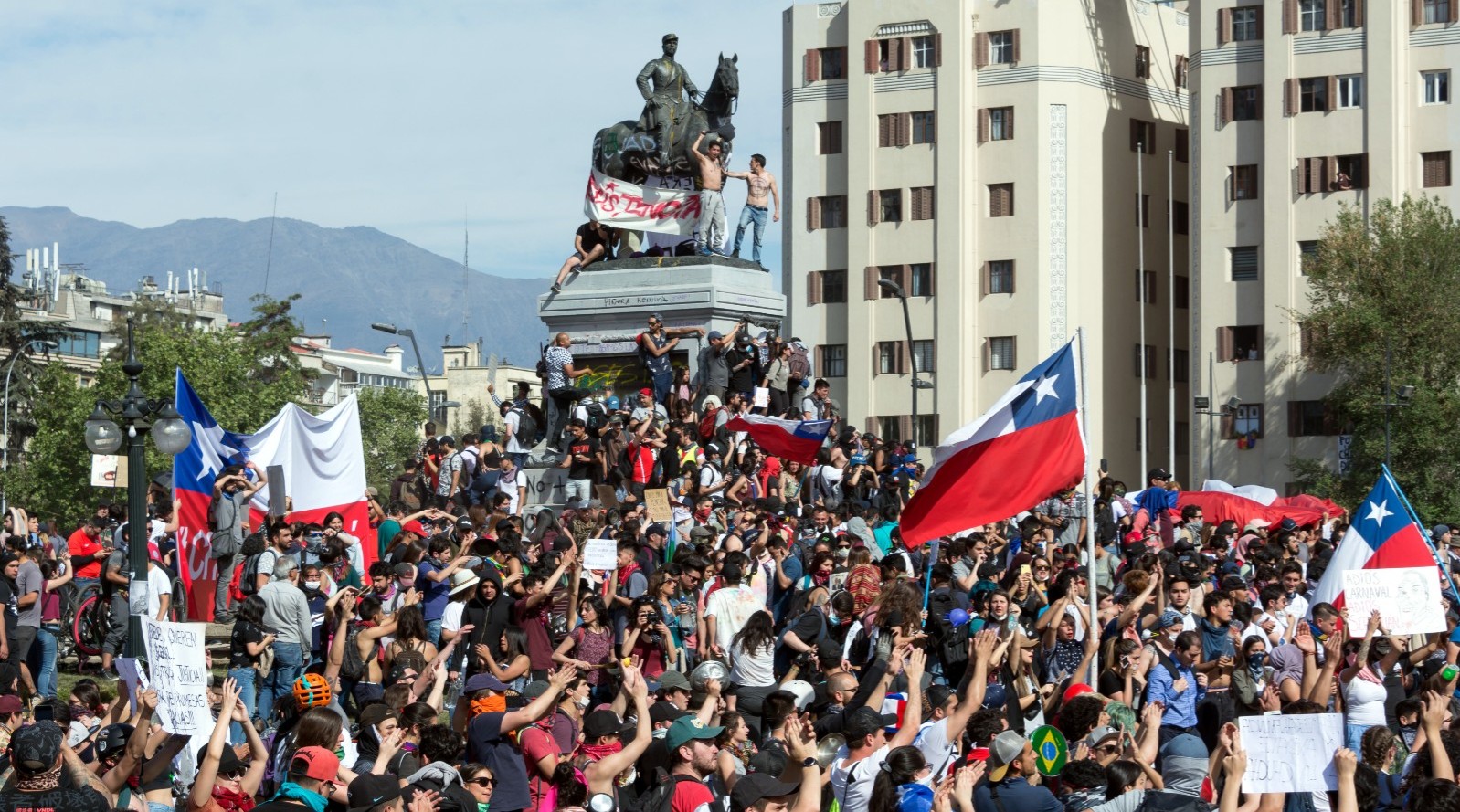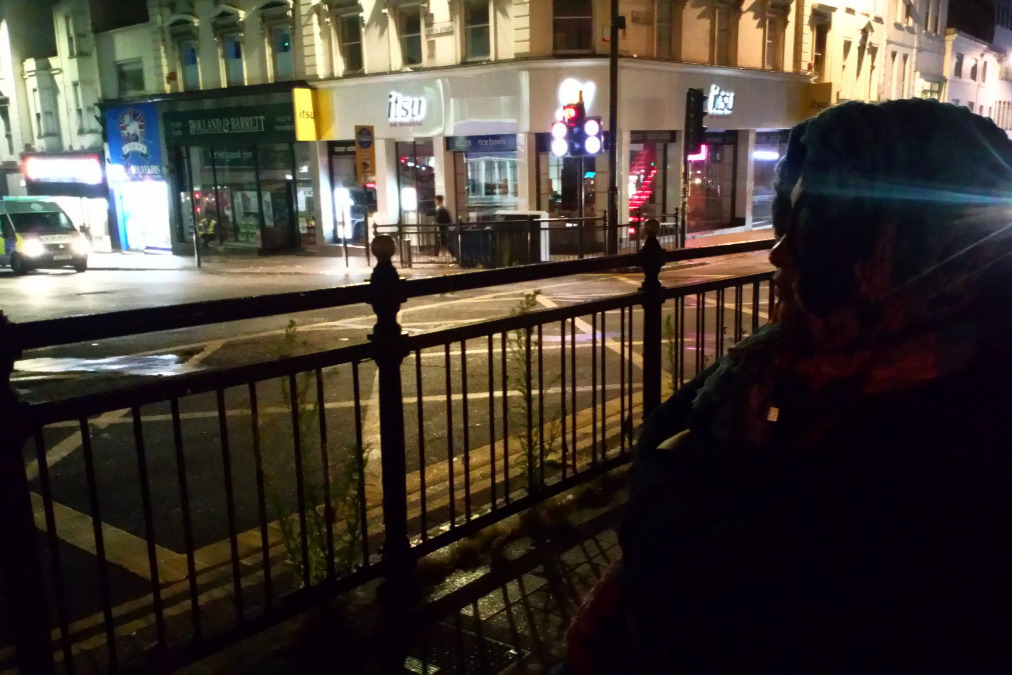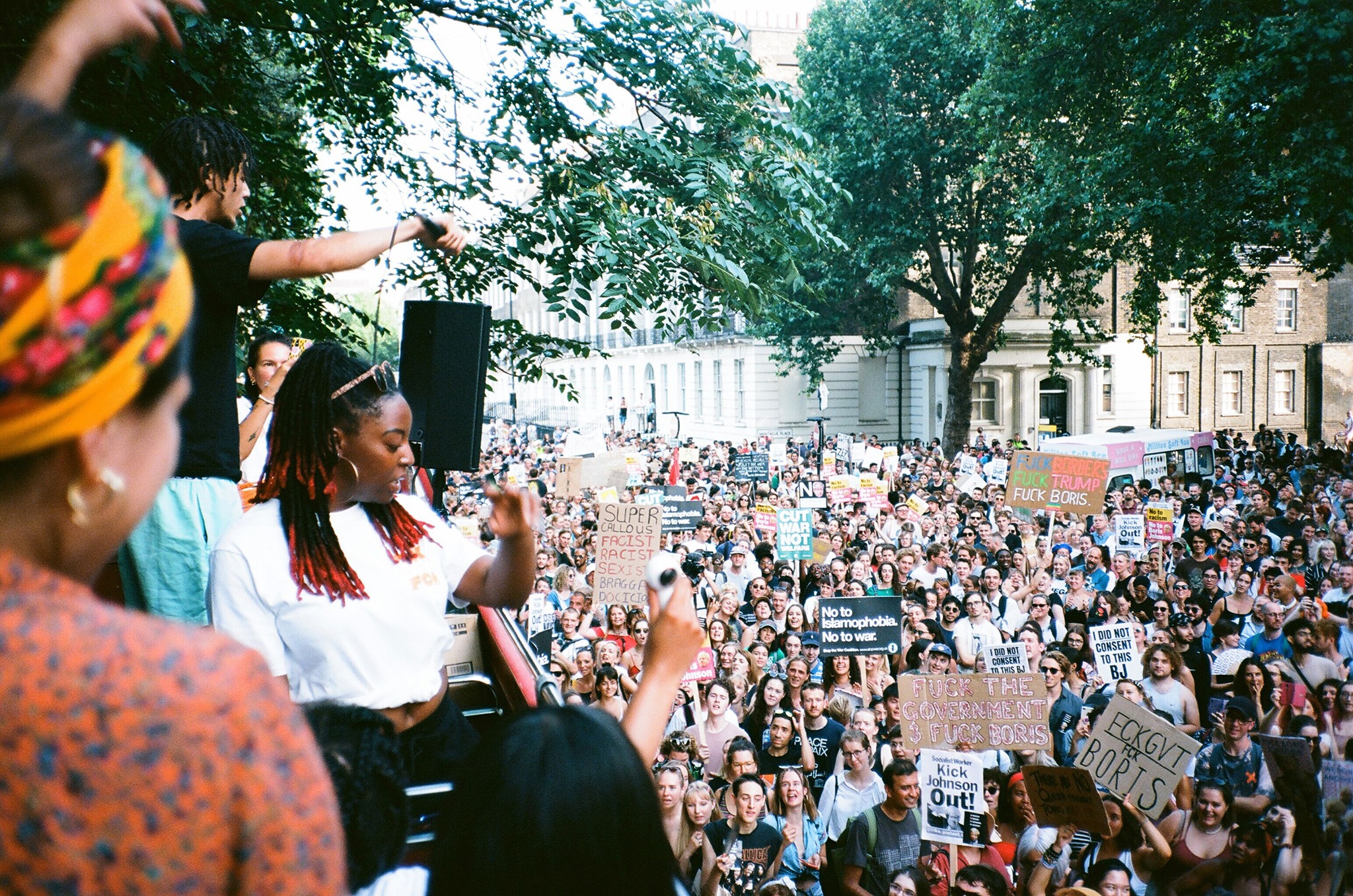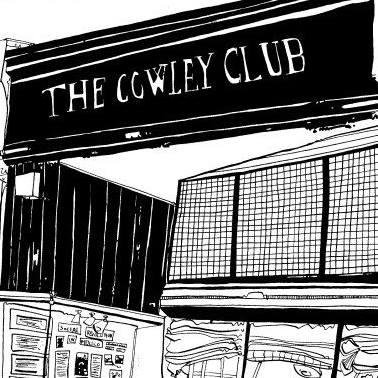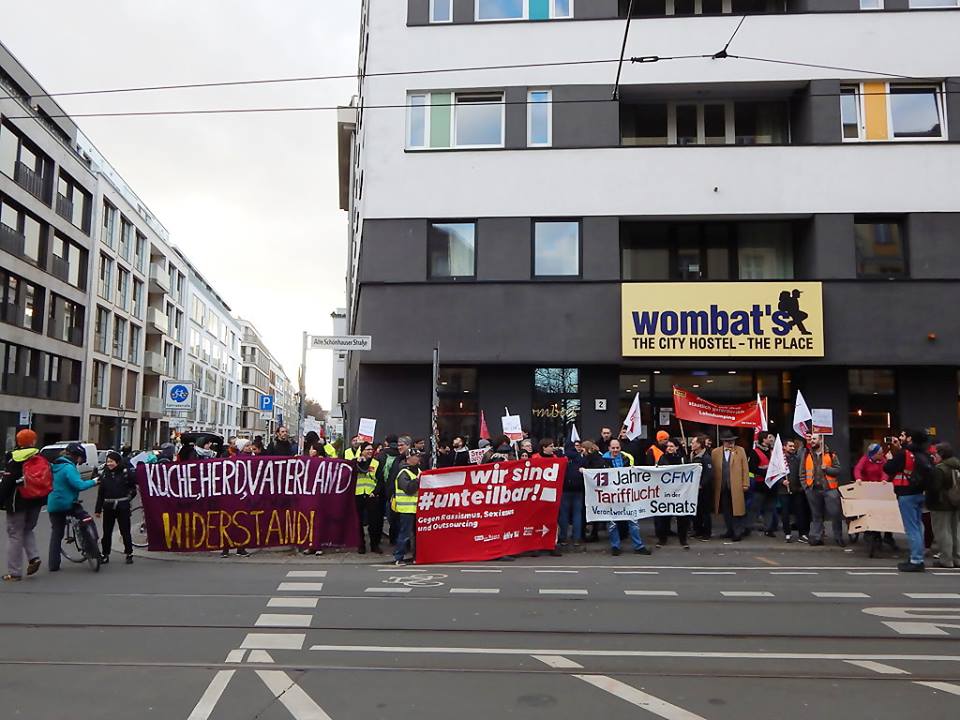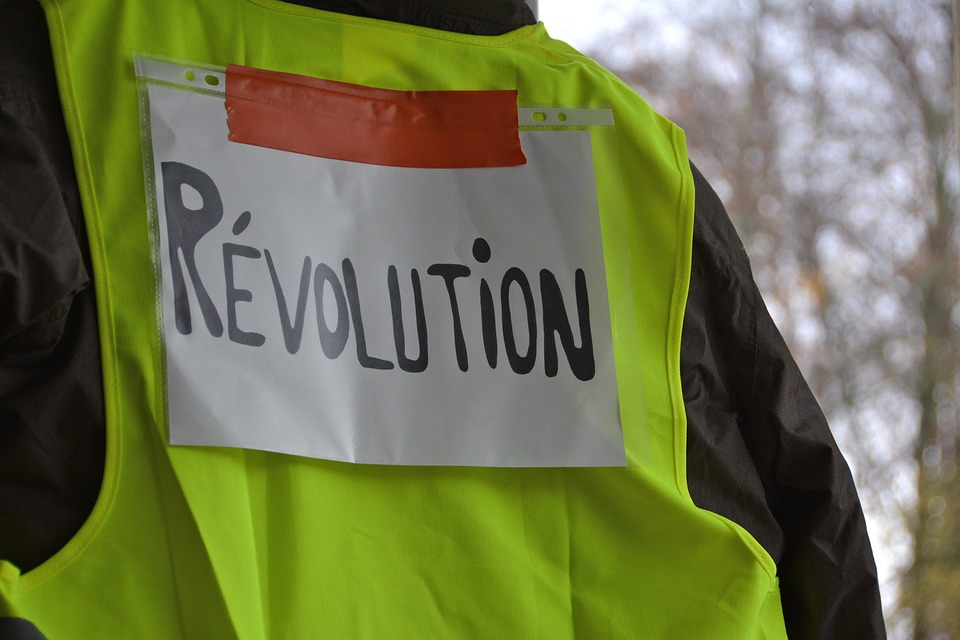On Saturday July 1st, Plan C took to the streets in London as part of a ‘Knock Out Capitalism’ bloc on the national People’s Assembly demonstration “Not one more day”. Upwards of a hundred people attended the bloc, and acted as a convergence for autonomists and anti-capitalists in what was generally an anti-government/pro-Labour demonstration. Overall, the bloc was successful at engaging with other demonstrators and promoting/practicing street tactics based on a more developed level of organisation.

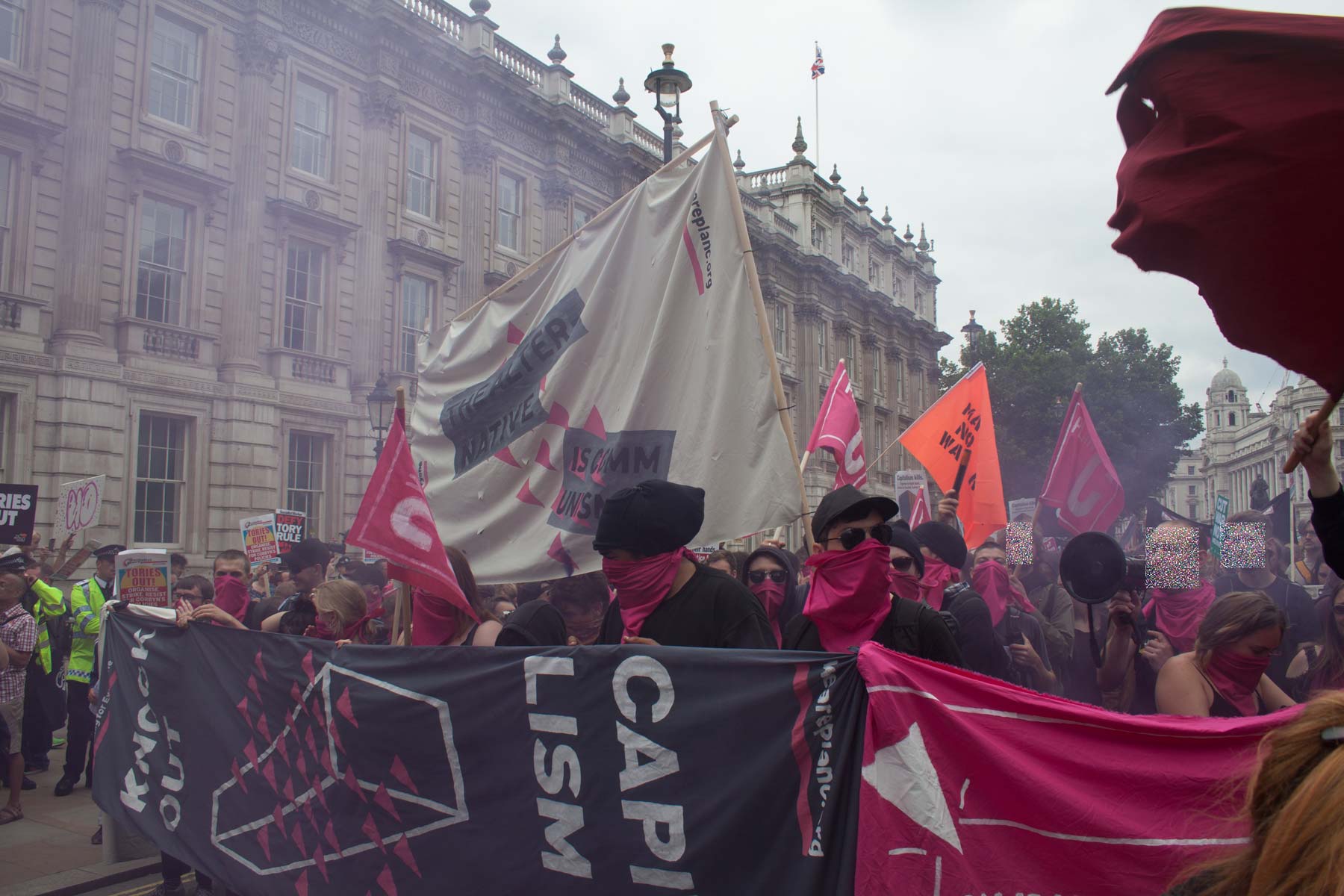
We estimate that the total demonstration was about 25,000 strong. That number was well below the aspirations of the organisers and the new left-populists; John McDonnell had gone so far as to call for a million people to march against the Tories. Compared to the mass demonstrations of the anti-austerity period (2010-15) it was small, with a large percentage of those attending coming from outside London. We’re pointing this out not in order to attack people who organised for the demo, but instead to promote an honest examination of what was expected and what actually materialised.

There are discussions to be had about why this was. Was there a general burnout post-election? Does this point to wider de-mobilisations caused by electoral politics to the detriment of social movements? Is it a collective perception of a lack of power on the streets, of the demonstration as a failed tactic? Has Corbynism had the effect of relying on the ballot box? Was the mobilisation just not as well organised as usual? These are good questions to ask, which when discussed might open up new productive insights into the current period.

The demographic of attendees was notably different from recent London-based demonstrations around the Grenfell Tower fire and Justice for Edson as well as the recent demonstration against the Labour run Haringey Councils plans to sell of £2Billion of public assets, which points to the disconnection between what is happening in our neighborhoods and how they manifest into larger moments. The linkages between these struggles need to be much stronger if a cohesive anti-government movement is to emerge.


Mass demonstrations alone aren’t enough – we all know that. To build leverage we need to conitnue deep organising in our workplaces and communities, not just repeated mobilisations to the ballot box or parliament square. But working towards the development and normalisation of well organised street tactics is a useful goal, particularly in a period where a new crisis of the state and the renewed crisis of capital seems possible.


